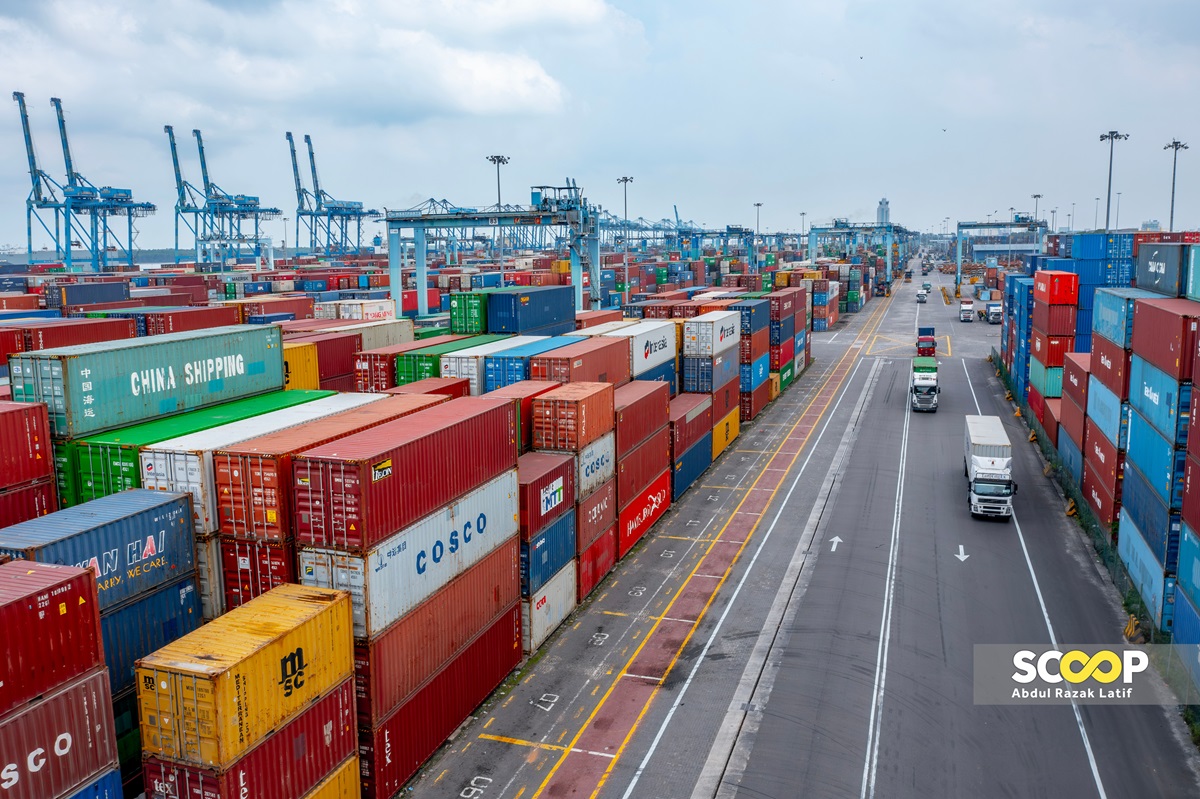KUALA LUMPUR – A 24% import tariff on Malaysian exports to the United States, which will come into effect on Wednesday, April 9, is set to stir significant market disruption. This move, part of President Donald Trump’s broader trade measures, places Malaysia alongside other nations facing steep tariffs, including China (34%), the European Union (20%), Vietnam (46%), Sri Lanka (44%), Cambodia (49%), Laos (48%), and Myanmar (44%).
Key Malaysian exports to the US, such as electrical and electronic equipment (US$23.68 billion), machinery including nuclear reactors and boilers (US$6.30 billion), and optical, medical, and technical apparatus (US$3.89 billion), may feel the impact.
Additionally, Malaysia also accounts for nearly 20% of US semiconductor imports, or approximately US$16.2 billion in 2024, according to Reuters.
Other notable exports were furniture and lighting signs (US$1.55 billion), animal and vegetable fats and oils (US$600.11 million), plastics (US$571.98 million), and articles of iron or steel (US$453.88 million).
So how would Trump’s trade shakeup affect Malaysia?
1. Dampened market sentiments
Speaking to Scoop, Barjoyai Bardai from the Malaysia University of Science and Technology said that Trump’s tariff push would have direct and indirect consequences, both in the short and long term, for the economies of both Malaysia and the US.
He warned that the tariff announcement could dampen market sentiment, similar to past tariff measures, with particular concern over Malaysia’s semiconductor sector.
Barjoyai noted that Malaysia’s stock market has already taken a hit, with foreign investors withdrawing due to concerns over the country’s exposure to US trade policies. This, in turn, may weaken the ringgit against the US dollar, making imported goods more expensive.
“We are an open economy where we import 80% of our goods and services, and so we will be affected quite badly. The price of goods may go up since we also import a lot of food items,” he said.
While the direct impact of tariffs will be felt most in the targeted sectors, Barjoyai hopes the effects will remain limited to automotive, electrical, and electronic goods.
“On automotive, we are not so worried because we do not export many Malaysian cars to the US. But on electrics and electronics, there may be some quite crippling effects.
“However, the effect would be specific (based on goods) because the 24% rate is not supposed to be a blanket rate,” he added.
2. Slowdown in Malaysian supplier-US importer businesses
Barjoyai also cautioned that Malaysian suppliers working with American importers may face a slowdown, as US companies seek alternative suppliers from countries unaffected by the tariff war.
If US importers shift away from Malaysian products, this could shrink Malaysia’s business volume and negatively impact the country’s GDP. American importers, facing higher costs due to tariffs, may also attempt to renegotiate sales terms, squeezing the profit margins of Malaysian businesses.
“It will reduce the business volume, the capacity, it will reduce the manpower requirement, and it will reduce wages.
“But of course, this is exaggerating the effect because in the end, we are just talking about a specific tax imposed at 24% on specific goods. So, it is not going to have a big impact on the (Malaysian) economy,” he added.
3. Decline in US import market over the years
In the long term, Barjoyai argued that Trump’s tariff measures could be more detrimental to the US itself, given its declining dependence on global imports.
Between 2018 and 2025, the US’ share of imported goods in its domestic market fell from 20% to 14%, suggesting a shift towards self-sufficiency.
“That would create a dreadful effect for the American economy, and because of that, the US dollar may get hammered heavily and this will be bad for American customers.
“But it might be good for Malaysia because if the US dollar gets weakened, then our ringgit will get stronger and we will see the impact accordingly,” he added.
However, some tariffs will not stack on top of existing duties under the US Trade Act 1962’s Section 232, which exempts imports of autos, auto parts, steel, and aluminium. Other sectors under national security investigations, such as copper, lumber, semiconductors, and pharmaceuticals, will also be exempt.
A forthcoming annex will list further exemptions, including specific critical minerals and energy products.
Despite the tariff impact, Malaysia’s International Trade and Industry Ministry announced that it would not impose retaliatory tariffs against the US, citing robust domestic demand as the key driver of economic growth. – April 4, 2025


